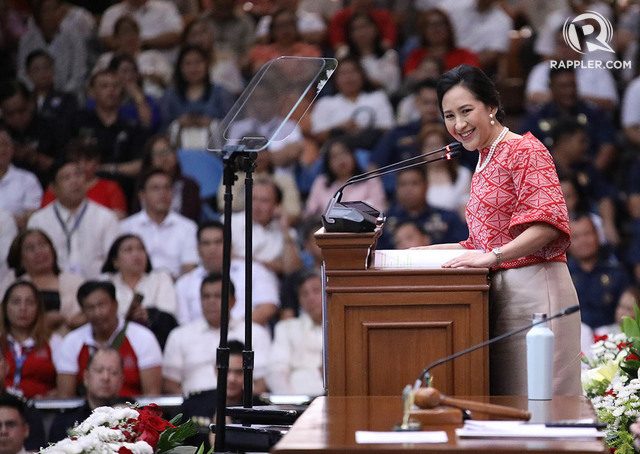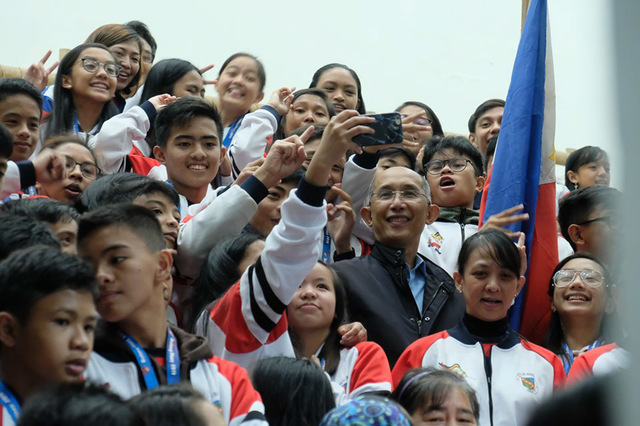SUMMARY
This is AI generated summarization, which may have errors. For context, always refer to the full article.

This compilation was migrated from our archives
Visit the archived version to read the full article.
When first-term Quezon City Mayor Joy Belmonte delivered her State of the City Address last October 7, she mentioned an interesting detail in her plans to deliver better but more transparent services: for the procurement of medicines for the health centers, she will adopt the system being used by Makati City.
The second-term mayor of Makati, Abigail Binay, gave her the rundown on how this system has made procurement in her city “100%” corruption-free, Belmonte said.

Flashback to Vico Sotto, another young, first-term mayor of a highly-urbanized city, shortly before he officially assumed the top post in Pasig City: he was visiting mayors of other cities, which had faced and addressed the same challenges as what he was expecting in his first term.
On May 31, Sotto attended a training on running a basic incident command system that had worked well for San Juan City in times of emergencies. During a break from the training sessions, he spoke with then outgoing mayor Guia Gomez and San Juan’s human resources department head on how they regularized city hall employees, especially those who had been there for more than a decade, and how to foster continuing learning and development of the staff.
On June 5, he met up with Mayor Kit Nieto of Cainta, Rizal, for what he called an “insightful” talk about governance. The two mayors had better forge a good working relationship because one’s policies would affect the other’s city – Pasig in Metro Manila and Cainta in Rizal share borders.
In early October, Sotto visited Valenzuela City and acknowledged that he’d learn a lot from Mayor Rex Gatchalian and staff about their successful housing program and their business permits system.
All these are good for our local governments, but not good for journalism in my view. What I mean is, I’m thankful that our elected officials and government workers initiate things like these, but I’m frustrated that we learn about these from their own social media accounts and not from news reports, from press releases sent to newsrooms and not from the good, old daily story chasing by journalists.

I won’t take it against the hardworking newsrooms and local government reporters (not just Rapplers). The media, while doing its mission of informing, exposing, and making sense of issues relevant to the everyday taxpayer, is also battling the reality of shrinking staff, limited resources, and perhaps limited access to, and therefore appreciation of, the nuances of how local governments are managed.
Social media platforms also become our competition for the attention of the local government officials’ constituents. If they “hear” directly from the mayor, then why even bother to look for news about their city from the mainstream media?
The constant presence of some officials or their information offices on social media also gives journalists a false sense of security that they’ve got their cities covered. How easy is it for us to “storify” what they post daily, anyway? Besides, we’ve got other beats to cover. But then that discourages digging deeper – the challenges of coverage also limit our ability to see the more serious challenges of local governance.
For example, there are the likes of Pasig’s Sotto who have repeatedly given assurances that they, based on merits, would retain and work with people associated with past administrations. But then there are also mayors who are confronted by totally corrupt or practically fix-resistant departments, which had become notorious under the former mayors – and the only right step to take now seems to be to fire them.
But then there’s the civil service law that protects these longtime employees. So the new administrations have to just put them on “floating” status while the wheels of anti-graft justice grind ever so slowly. In the meantime, when you have offices on floating status and you hire consultants and contractuals to do their job, the local governments are effectively spending on the salaries of two sets of people for the same jobs. But what do mayors do? And how can the media report on these problems that are not exactly black and white?

I don’t have the answers. Not yet. I’m writing about these realities precisely because I would want the media (again, not just Rappler) to take local government reporting as a serious business. And that requires rewiring how we look at capitols and city halls – that is, not just some secondary beats compared to Malacañang and department offices.
The Philippine Center for Investigative Journalism published in 2001 the book Investigating Local Governments: A Manual for Reporters (shameless plug: I wrote the chapter on delivering basic services). I always say it’s a good guide not just for journalists but for citizens as well – know your local governments, so you’ll know how to make them accountable. So you can also call out the media on what we are missing or reporting wrong. Or, if you’d like to work with us, tip us off when you spot a story we can pursue.
Again, local governance doesn’t end after the new mayors’ first 100 days.
Until next Wednesday! Email me your thoughts at miriamgracego@rappler.com. If you want to help Rappler pursue in-depth reports on specific sectors and issues, you can donate to our investigative fund here. You can check out the conversations I engage in on Twitter @miriamgracego and follow the stories I share on Facebook.
Bookmark our special coverage page: SPOTLIGHT ON CITIES 2019: The First 100 Days for news, in-depth reports, opinion pieces, and videos on select local governments.
Read also:
- [EDITORIAL] #AnimatED: The good mayors need us)
- What have your mayors done in the first 100 days?
- Guess who’s on Viber?
- Between governance and romance
- Vico Sotto, the Prince of Pasig, must prepare for war
- First 100 Days: In Manila, Isko Moreno finds his most challenging role
- Francis Zamora: After 50 years, San Juan gets a new captain
- ‘A listening government’: Baguio’s Magalong recruiting advisers for 10 priority areas
Add a comment
How does this make you feel?
There are no comments yet. Add your comment to start the conversation.